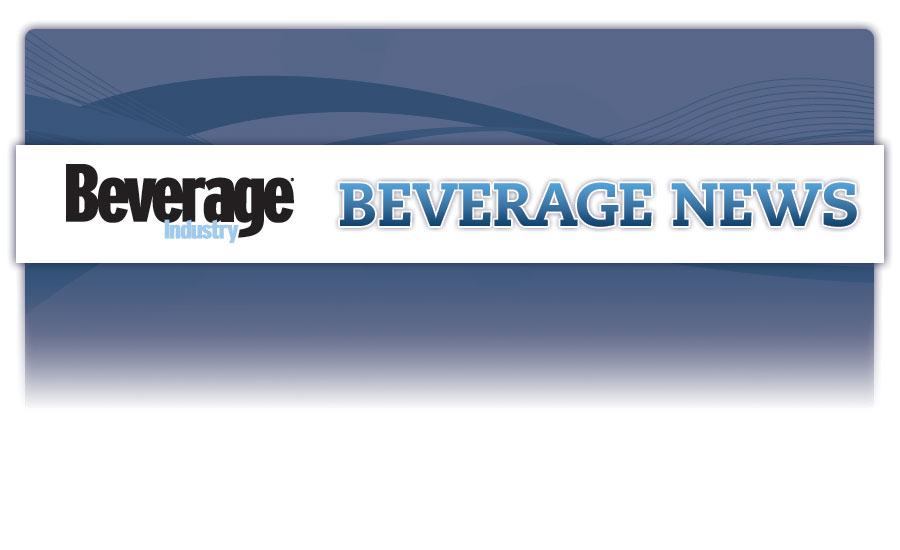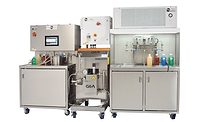Lab testing services offer beverage-makers more time
Product simulation avoids strains on production plants

Consumers’ desires for functional, healthy, yet refreshing beverages has placed a greater demand on manufacturers’ research and development (R&D) divisions. Whether large or small operations, beverage-makers are leaning on these divisions to keep them competitive within the market. Yet, in order to dedicate time to develop and test new products while minimizing the impact on existing production lines, companies are turning to lab testing equipment to save time and money.
David Miles, executive vice president of MicroThermics Inc., Raleigh, N.C., notes that many experts say that at least 90 percent of formulations fail during new product development. However, he suspects it could be even more than that.
“I think more like 99 percent formulations fail for a variety of reasons: it fails in a production plant or generates too much viscosity in the plant or it might be the formulation is too expensive to sell the product reasonably on the market. … So, they have to take all that into consideration when developing a product and they have to be able to do it before they get to the production plant because doing research in a production plant is a very expensive way to do it,” he explains.
Miles notes that because production plants are designed for long runs, it can be difficult for R&D to test more than a couple of batches in a day.
“You have to make a lot of product to get one or two batches done in a day. It’s very expensive because at that point you’re a production that literally lives and breathes by the more product that you’re selling, the more money you make is down,” he explains. “It’s not making saleable product, and it will likely need more cleaning because the products themselves are not approved for production. … It can cost you $20,000 in a day to do research in a production plant, and you might, if you’re lucky, get two batches.”
To alleviate the financial and time constraints, MicroThermics offers lab testing equipment as well as services.
“Our equipment is designed to simulate what’s done in the production plant so that when a company is developing a new liquid product … they can see how the product performs in process,” Miles says. “Meaning is it going to burn in the production plant, is it going to generate too much viscosity in the production plant, but also they can see how the product itself comes out before they go to production.
“They can make sure [whether] it’s a new product or even a change in an old product [that it] gives them the product they want after it’s been processed, so it’s the right flavor, texture, color, smell, consistency, all of that,” he continues. “It essentially saves them from production downtime, and it gives them the ability to get more done in a shorter time because they can do many smaller batches. It’s essentially saving them time to get to the market faster than doing it on a stove in a production plant or even a pilot plant.”
Another benefit to utilizing lab testing services is the minimal, if not non-existent, impact it can have on a beverage manufacturer’s staff.
“Instead of doing say two batches in a day that takes all of the people needed to create the batches and mixing and run the whole plant, we do two dozen runs in a day with a fraction of people, maybe just the formulator and [the] person running the equipment,” Miles explains. “Sometimes those are the same person. That’s the startling difference is it gives you the ability to do a lot more work in a much shorter period of time with a lot fewer people. So, it gives you a lot of savings and allows you to get your products to market faster with less money than in conventional ways.”
However, Miles adds that lab testing services only will be beneficial if the environment is able to simulate the operations within an actual production plant.
“One of the big keys is making sure that the process that you’re doing in the lab is representative of what you’re doing in a plant,” Miles says. “That’s really what we do. We do build the equipment but our business is in the process simulation. The other side is if you’re using an inaccurate process in the laboratory then you can’t translate it to the production plant, so then that’s wasted time. The work we do in our business is actually process simulation, so right out of the box, our equipment is designed to simulate the production process very closely. The more we know about someone’s particular process, the more we can mimic it and we can customize and modify the equipment to give you very specific processing conditions as well.” BI
Looking for a reprint of this article?
From high-res PDFs to custom plaques, order your copy today!






